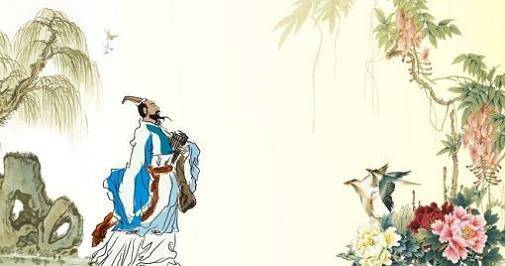Lady Yu, the Royal Beauty
- Poetry of Li Yu

Spring flowers and autumn moon, O when will all these end?
How much of my past I comprehend?
Last night, to my loft once more, the vernal east wind came;
In moonlight, I could not bear to look back towards my homeland rid of my name.
Jade steps and carved railings may still as ever be there,
Though changed are the faces fair.
O how great, how grave, I ask, can my woe and sorrow be?
Just like the River’s swelling spring-tide waters rolling east to the sea.
This is supposed to be the last lyric written by Li Yu before his death.As John Mill says,"all poetry is of the nature of soliloquy." "The peculiarity of poetry appears to us to lie in the poet's utter unconsciousness of a listener."Unfortunately,the emperor of Song "overheard"this poem and ordered the poet to take poison.So it may well be said that this lyric epitomizes Nietzeche's concept that all literature must be written in blood.
Translated by Andrew W.F. Wong (Huang Hongfa)
春花秋月何时了,往事知多少?
小楼昨夜又东风,故国不堪回首月明中!
雕栏玉砌应犹在,只是朱颜改。
问君能有几多愁?恰似一江春水向东流。
- Why Chinese poems is so special?
- The most distinctive features of Chinese poetry are: concision- many poems are only four lines, and few are much longer than eight; ambiguity- number, tense and parts of speech are often undetermined, creating particularly rich interpretative possibilities; and structure- most poems follow quite strict formal patterns which have beauty in themselves as well as highlighting meaningful contrasts.
- How to read a Chinese poem?
- Like an English poem, but more so. Everything is there for a reason, so try to find that reason. Think about all the possible connotations, and be aware of the different possibilities of number and tense. Look for contrasts: within lines, between the lines of each couplet and between successive couplets. Above all, don't worry about what the poet meant- find your meaning.